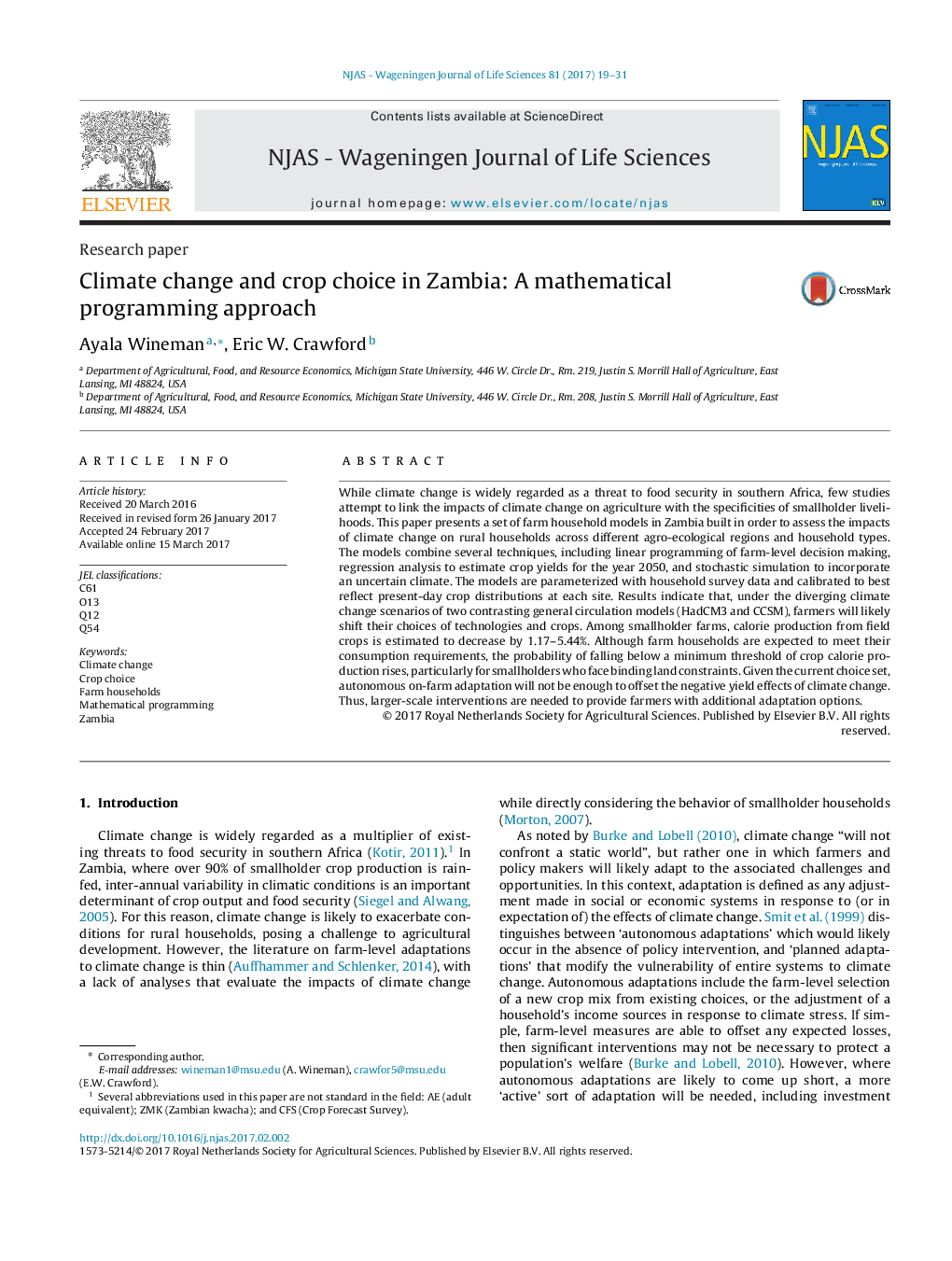| کد مقاله | کد نشریه | سال انتشار | مقاله انگلیسی | نسخه تمام متن |
|---|---|---|---|---|
| 5760527 | 1624056 | 2017 | 13 صفحه PDF | دانلود رایگان |
- Crop choice is driven by resource constraints and trade-offs across crop activities.
- Crops in Zambia exhibit varying levels of sensitivity to climate change.
- Farmers across Zambia will likely shift their crop choices under climate change.
- Autonomous adaptation will not fully offset the negative effects of climate change.
While climate change is widely regarded as a threat to food security in southern Africa, few studies attempt to link the impacts of climate change on agriculture with the specificities of smallholder livelihoods. This paper presents a set of farm household models in Zambia built in order to assess the impacts of climate change on rural households across different agro-ecological regions and household types. The models combine several techniques, including linear programming of farm-level decision making, regression analysis to estimate crop yields for the year 2050, and stochastic simulation to incorporate an uncertain climate. The models are parameterized with household survey data and calibrated to best reflect present-day crop distributions at each site. Results indicate that, under the diverging climate change scenarios of two contrasting general circulation models (HadCM3 and CCSM), farmers will likely shift their choices of technologies and crops. Among smallholder farms, calorie production from field crops is estimated to decrease by 1.17-5.44%. Although farm households are expected to meet their consumption requirements, the probability of falling below a minimum threshold of crop calorie production rises, particularly for smallholders who face binding land constraints. Given the current choice set, autonomous on-farm adaptation will not be enough to offset the negative yield effects of climate change. Thus, larger-scale interventions are needed to provide farmers with additional adaptation options.
Journal: NJAS - Wageningen Journal of Life Sciences - Volume 81, June 2017, Pages 19-31
